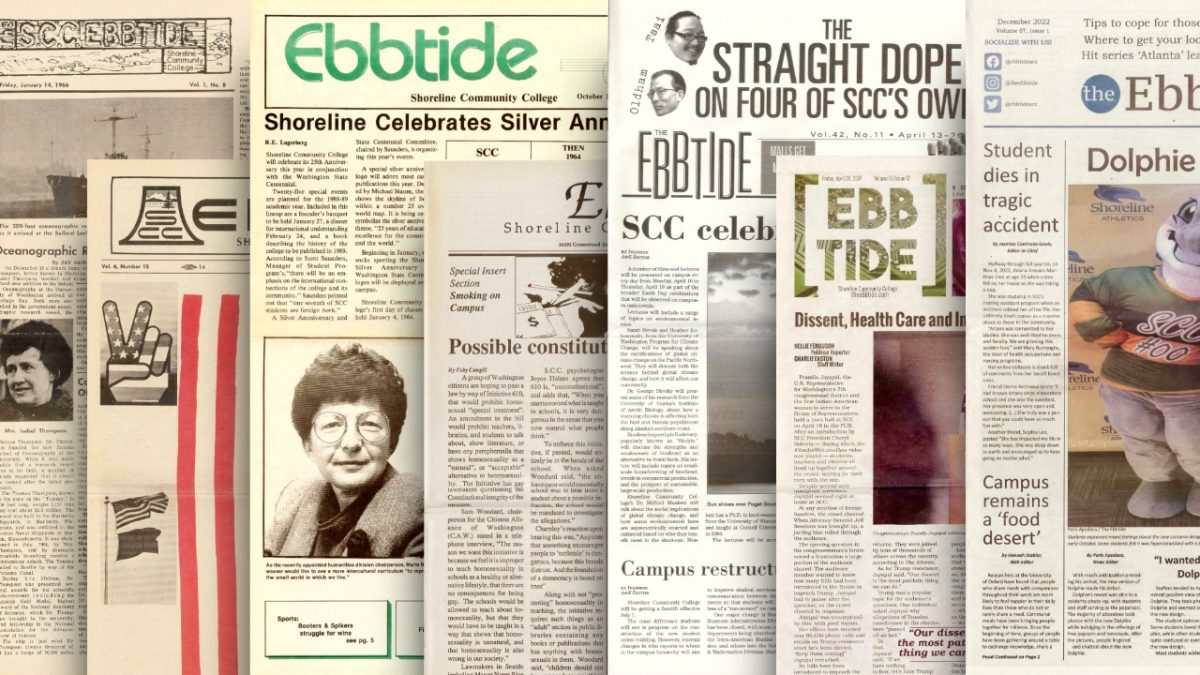By Connor Tee
One of the things I like about Shoreline is the variance in ages. At a lot of other schools, I’d be stuck in freshman classes with a bunch of Gen-Z punks. Here at Shoreline, nobody questions the 25-year-old in their class, or at least not until they want to get to know me better.
There are a lot of reasons why I’m returning to school so late, but only one that matters here. In late October of 2014, I was diagnosed with leukemia.
Blood cancers aren’t like other cancers in that there’s no tumor to excise. The primary result of my leukemia was that my body started producing a lot of nearly-useless blood cells.
I won’t bore you with my counts when I went to the hospital and I won’t bum you out with the details of my diagnosis and treatment. I’m happy to share, but this piece isn’t about me.
What’s important for you to know is that during the course of my treatment, a mere six months, I received over 30 transfusions of red blood cells, as well as another 30 plus of platelets.
Before I was diagnosed, I had never given blood. I just couldn’t ever commit to the act, even when the opportunities presented themselves, such as when there were regular drives on my first college campus, or when my parents went out to the Puget Sound Blood Center to donate.
Now, I can pretty easily see that my issues are nothing in the face of the people who need that blood. But, of course, I can’t donate. They won’t take blood from someone who had leukemia and I don’t think anyone is surprised to learn that.
Upside, I’m exempt from the draft.
But there’s something else that they ask you when you donate blood, something even more crucial.
My cancer treatment didn’t take. I had a mutated strain and it resisted the chemo and lived to screw with me another day. So, I went with the “nuclear option” of blood cancers, a bone marrow transplant.
I was lucky. I’m white, with a strong German heritage. In Germany, every member of the armed forces is required to be on the registry. I had 10,000 perfect matches for my transplant.
But there was another kid on my floor, just as white as me. And he got zero.
He’s fine now. He just started at Bellevue High and managed to get fixed another way, but his treatment wasn’t nearly as permanent as mine.
I bring up the white thing because Caucasian ethnicities are vastly overrepresented in the bone marrow registry. What they need more than anything are people of color, and especially those of mixed race to register. Ethnicity and heritage plays a key role in matching bone marrow.
But even if you are white, register anyway for all the kids who get zero matches. Because, let me tell you now, cancer doesn’t give a shit about your white privilege.
So donate. Get on the registry. Do it while you still can, before anemia, age, cancer, or any number of other things stop you.
Donate because I can’t.
The blood drive will take place from 10 a.m.-4 p.m. on Wednesday, Nov. 30 in the PUB.







